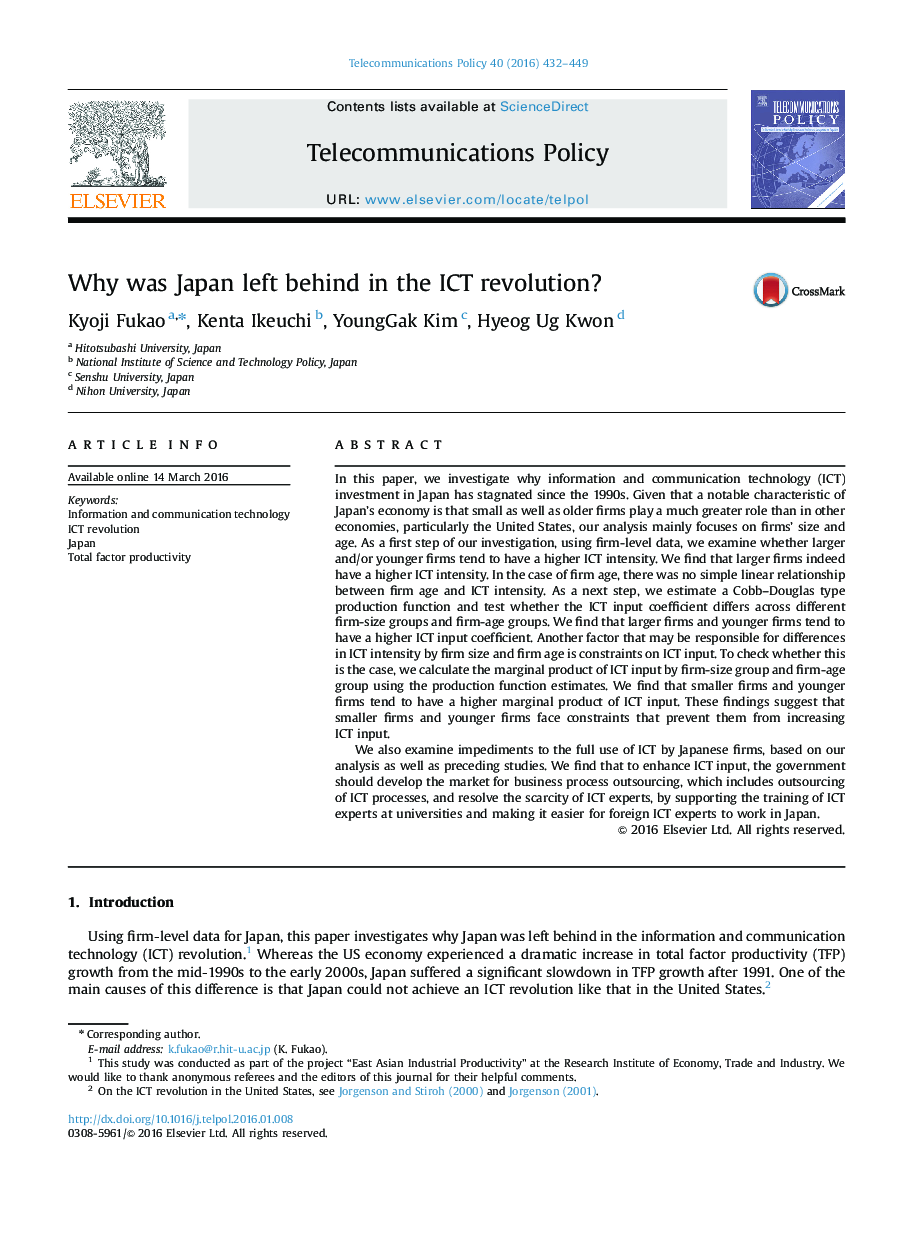| کد مقاله | کد نشریه | سال انتشار | مقاله انگلیسی | نسخه تمام متن |
|---|---|---|---|---|
| 556535 | 874437 | 2016 | 18 صفحه PDF | دانلود رایگان |
• Larger firms have a higher ICT intensity.
• Larger and younger firms have a higher output elasticity of ICT input.
• Smaller and younger firms seem to face constraints that prevent them from increasing ICT input.
• To enhance ICT use, Japan’s inflexible labor market needs to be reformed.
In this paper, we investigate why information and communication technology (ICT) investment in Japan has stagnated since the 1990s. Given that a notable characteristic of Japan’s economy is that small as well as older firms play a much greater role than in other economies, particularly the United States, our analysis mainly focuses on firms’ size and age. As a first step of our investigation, using firm-level data, we examine whether larger and/or younger firms tend to have a higher ICT intensity. We find that larger firms indeed have a higher ICT intensity. In the case of firm age, there was no simple linear relationship between firm age and ICT intensity. As a next step, we estimate a Cobb–Douglas type production function and test whether the ICT input coefficient differs across different firm-size groups and firm-age groups. We find that larger firms and younger firms tend to have a higher ICT input coefficient. Another factor that may be responsible for differences in ICT intensity by firm size and firm age is constraints on ICT input. To check whether this is the case, we calculate the marginal product of ICT input by firm-size group and firm-age group using the production function estimates. We find that smaller firms and younger firms tend to have a higher marginal product of ICT input. These findings suggest that smaller firms and younger firms face constraints that prevent them from increasing ICT input.We also examine impediments to the full use of ICT by Japanese firms, based on our analysis as well as preceding studies. We find that to enhance ICT input, the government should develop the market for business process outsourcing, which includes outsourcing of ICT processes, and resolve the scarcity of ICT experts, by supporting the training of ICT experts at universities and making it easier for foreign ICT experts to work in Japan.
Journal: Telecommunications Policy - Volume 40, Issue 5, May 2016, Pages 432–449
